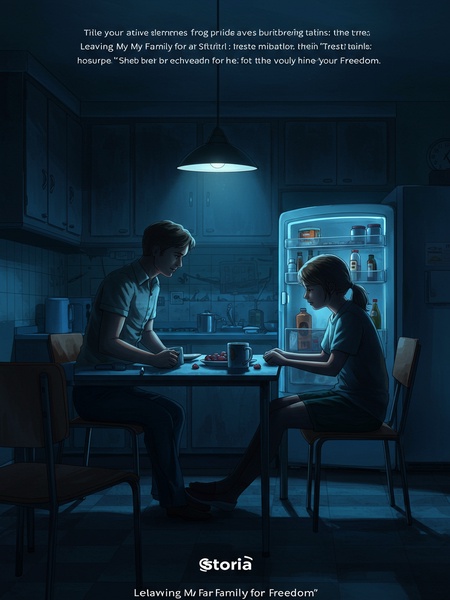Chapter 1: The Strawberry That Broke Me
The fridge hummed and the scent of strawberries mixed with the faint aroma of last night’s coffee. My daughter, who now lives all the way over in Sydney, had sent me a box of strawberries she claimed were pricier than gold. She texted me last week, going on and on about how these strawberries tasted like pure sunshine—said she wanted me to have something from her new life, straight from Sydney.
I set the box down on our battered old coffee table, feeling a flutter in my chest—like I was about to unwrap a birthday present as a kid. Following her instructions to the letter, I washed them three times with salt water, my fingers tingling in the icy water. The berries were fat and red, with beads of water clinging to their skin, and the kitchen filled up with the smell of summer and longing. I was just about to pop one in my mouth, savoring the moment, when Caleb—my not-quite-one-year-old grandson—started wailing in the next room, that sharp, hiccupping cry that meant nothing else mattered.
I hesitated, torn between the rare treat and the baby’s cries, guilt pricking at me as I set the colander down. I wiped my hands on my jeans and hurried to Caleb, whispering silly songs and bouncing him until his sobs faded to little sniffles. I fed him his mashed peas, wiped his chin, and tucked his blanket back around his legs. By the time I made it back to the living room, all that remained on the table were a few limp strawberry leaves and a sticky ring where the juice had pooled.
My husband of thirty-five years, Frank, poked his head in from the den, taking a long look at the puddle and the empty colander. He frowned like I’d knocked over his favorite beer during the Super Bowl. “What the heck happened here? You let the table get all soaked again? Honestly, Linda, sometimes I wonder what you do all day.”
He shook his head, muttering about how I’d used the colander with the big holes, like I was some rookie in my own kitchen. It was the same colander I’d used for decades, the plastic handle chewed by time. My cheeks burned, but I kept my lips pressed tight.
Meanwhile, Derek—our son, home for the weekend—was slouched at the far end of the couch, the glow of his phone reflecting in his glasses. He was finishing the last strawberry, fingers sticky, eyes never leaving his game.
“Mom, these strawberries are really good,” he said, mouth half full. “Ask Natalie where she bought them. I want to get some for Allie—she’s been busting her butt at work, she deserves a treat.”
A flicker of irritation shot through me, sharper than I expected. I wanted to snap at him, but the words caught in my throat—when was the last time I’d put myself first? I stood there, clutching the empty colander, staring at the puddle of juice on the battered table. My hands hovered over the empty colander, wanting to turn back time, just for a taste. For a second, I felt a hollowness settle in my chest—life itself seemed to lose its color, like someone had dimmed the lights inside me. My hands shook. I couldn’t even muster the energy to wipe up the mess.
So I turned, scrolled through my phone contacts, and called my daughter. “That visa you mentioned last time,” I said, my voice flat as water, “is it still possible?”
Later, Natalie posted a video on her Instagram: me, laughing in the bright Australian sun, picking strawberries the size of golf balls at a farm outside Sydney. Her followers joked she looked a decade younger with her mom around. For the first time in years, I saw myself grinning—not just smiling, but actually happy, free in a way I’d almost forgotten.
That father and son of mine watched the video, eyes red and swollen, finally seeing the empty chair at our table. Too late, maybe. But I was already gone.
Continue the story in our mobile app.
Seamless progress sync · Free reading · Offline chapters